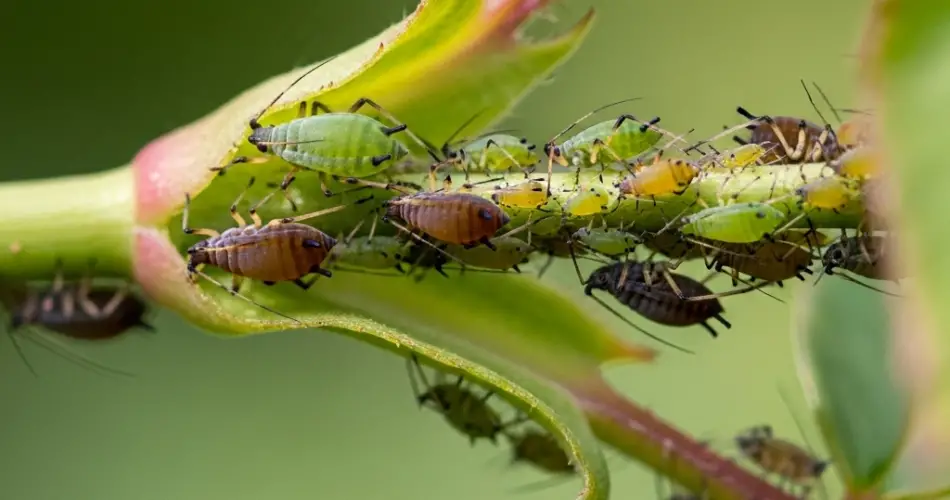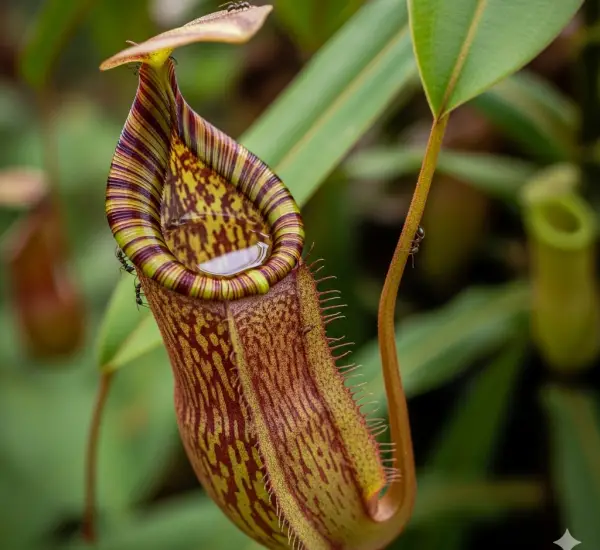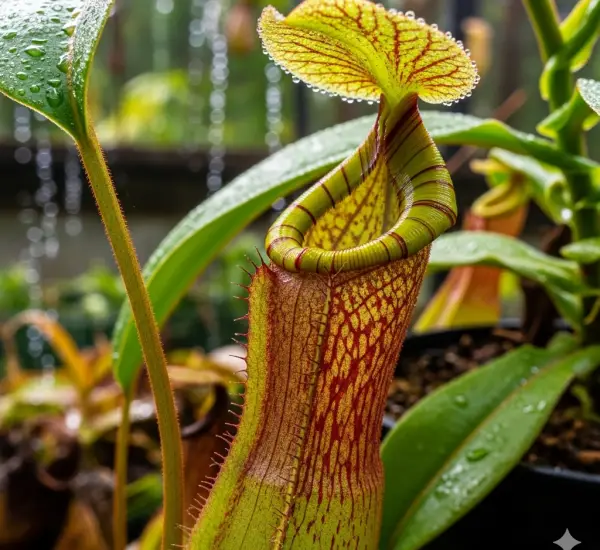Aphids are one of the most common and destructive pests in gardens worldwide. These tiny insects suck the sap from plants, weakening them and spreading diseases. If left untreated, aphid infestations can quickly damage your flowers, vegetables, and fruit plants. While commercial pesticides are widely available, they often contain harsh chemicals that can harm beneficial insects, pollinators, and the environment.
Fortunately, there is a simple, effective, and eco-friendly solution that you can easily prepare at home—a natural homemade pesticide designed specifically to control aphids without the risks associated with synthetic chemicals.
Why Choose a Homemade Pesticide for Aphids?
Homemade pesticides offer several advantages over commercial products:
-
Safer for the Environment: They use natural ingredients that break down quickly without leaving toxic residues.
-
Non-Toxic to Beneficial Insects: When used properly, homemade remedies target pests without harming ladybugs, bees, and other helpful garden allies.
-
Cost-Effective: Most ingredients are inexpensive and readily available in your kitchen or garden.
-
Easy to Prepare: No complicated formulas or special equipment needed.
By choosing a homemade aphid pesticide, you promote a healthier garden ecosystem while effectively managing pest populations.
Understanding Aphids and Their Impact
Aphids are small, soft-bodied insects that come in various colors, including green, black, red, and yellow. They feed on plant juices by piercing the stems, leaves, or flower buds. Their feeding causes:
-
Leaf curling, yellowing, and wilting
-
Stunted plant growth
-
Reduced yield and fruit quality
-
Transmission of viral diseases
-
Production of sticky honeydew, which attracts ants and fosters sooty mold
Because aphids reproduce rapidly, infestations can escalate quickly if not controlled early.
Ingredients for the Homemade Aphid Pesticide
This natural pesticide combines ingredients known for their insect-repelling and insecticidal properties:
-
Water: Acts as a carrier for the other ingredients.
-
Liquid Dish Soap: Helps break down the aphids’ protective outer layer, causing dehydration and death. Use a mild, biodegradable soap free of degreasers or perfumes.
-
Garlic: Contains sulfur compounds that repel aphids and other pests.
-
Onion: Similar to garlic, onions have natural insect-repellent properties.
-
Chili Pepper (optional): Adds a spicy deterrent effect.
-
Vegetable Oil (optional): Helps the mixture stick to plant surfaces for better efficacy.
How to Prepare Your Homemade Aphid Pesticide
Step 1: Prepare the Garlic and Onion Infusion
-
Chop 3-4 cloves of garlic and 1 small onion.
-
Place them in 1 liter (about 4 cups) of water.
-
Let the mixture steep for 24 hours to extract the active compounds.
Step 2: Strain the Mixture
-
After 24 hours, strain the infusion to remove solids.
-
The resulting liquid will have a strong garlic and onion scent.
Step 3: Add Soap and Oil
-
Add 1 teaspoon of mild liquid dish soap to the infusion.
-
Optionally, add 1 tablespoon of vegetable oil to help the solution adhere to leaves and stems.
Step 4: Mix Thoroughly
-
Stir the mixture well to combine all ingredients.
How to Apply the Homemade Aphid Pesticide
-
Pour the solution into a spray bottle or garden sprayer.
-
Spray directly onto aphid-infested plants, covering all leaf surfaces, especially the undersides where aphids tend to gather.
-
Apply in the early morning or late afternoon to avoid leaf burn from sunlight.
-
Repeat the application every 3-5 days until the aphid population is under control.
-
After heavy rainfall, reapply as needed since the solution can wash away.
Additional Tips for Managing Aphids Naturally
-
Encourage Beneficial Insects: Attract ladybugs, lacewings, and parasitic wasps, which are natural aphid predators, by planting flowers such as dill, fennel, and marigolds.
-
Prune Heavily Infested Areas: Remove severely damaged leaves or shoots to reduce aphid numbers.
-
Maintain Plant Health: Strong, healthy plants are less susceptible to pests. Provide adequate water, nutrients, and sunlight.
-
Use Companion Planting: Plant aphid-repellent herbs and flowers near vulnerable plants to deter infestations.
Safety and Precautions
While this homemade pesticide is generally safe, keep in mind:
-
Always test the spray on a small area first to check for any adverse reactions, especially on sensitive plants.
-
Avoid spraying during the heat of the day to prevent leaf damage.
-
Use gloves when handling chili peppers and garlic if you have sensitive skin.
-
Store any leftover solution in a cool, dark place and use it within a week for best results.
Why Homemade Remedies Are a Great Choice
Using natural homemade pesticides promotes sustainable gardening practices. It reduces your dependence on chemical pesticides that can harm soil health and beneficial organisms. Plus, it’s empowering to take control of your garden’s health using ingredients you trust and understand.
Conclusion
Aphids don’t have to ruin your garden. By making and applying this simple homemade pesticide, you can effectively control aphid populations while protecting your plants, pollinators, and the environment. This natural remedy is easy to prepare, affordable, and a safe alternative to commercial chemicals.
Try this homemade aphid pesticide on your garden plants and enjoy a healthier, pest-free garden all season long.



